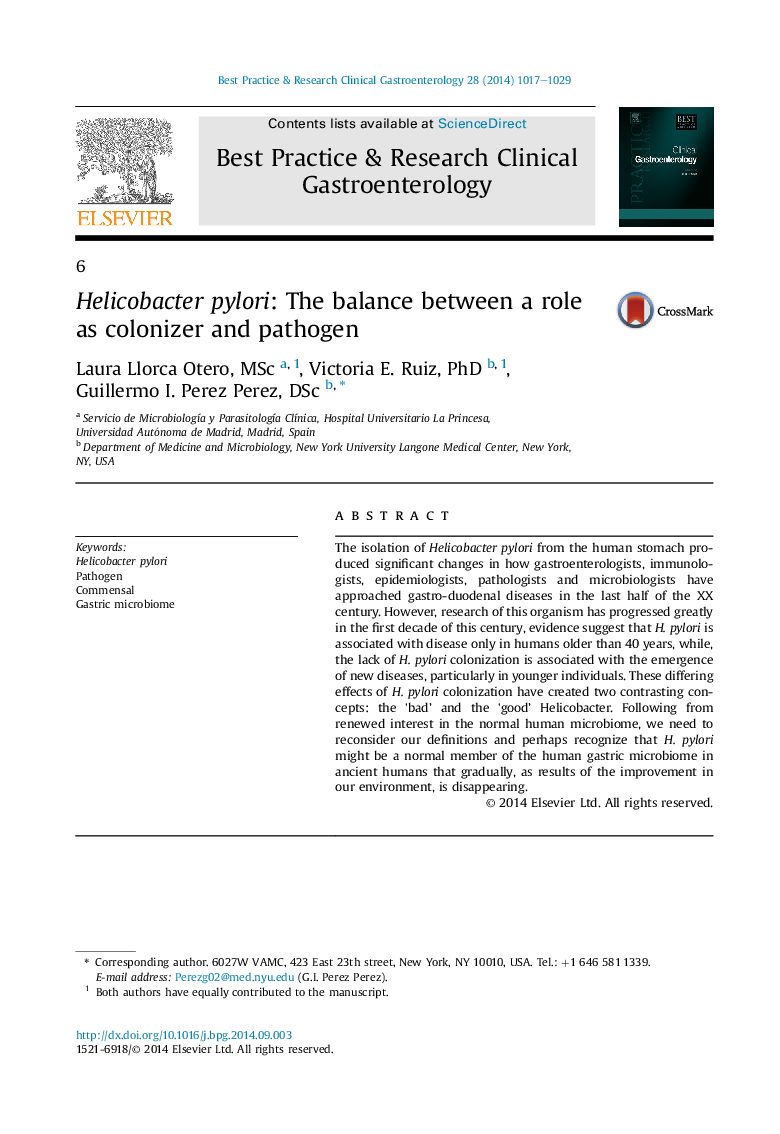| Article ID | Journal | Published Year | Pages | File Type |
|---|---|---|---|---|
| 3254071 | Best Practice & Research Clinical Gastroenterology | 2014 | 13 Pages |
The isolation of Helicobacter pylori from the human stomach produced significant changes in how gastroenterologists, immunologists, epidemiologists, pathologists and microbiologists have approached gastro-duodenal diseases in the last half of the XX century. However, research of this organism has progressed greatly in the first decade of this century, evidence suggest that H. pylori is associated with disease only in humans older than 40 years, while, the lack of H. pylori colonization is associated with the emergence of new diseases, particularly in younger individuals. These differing effects of H. pylori colonization have created two contrasting concepts: the ‛bad’ and the ‛good’ Helicobacter. Following from renewed interest in the normal human microbiome, we need to reconsider our definitions and perhaps recognize that H. pylori might be a normal member of the human gastric microbiome in ancient humans that gradually, as results of the improvement in our environment, is disappearing.
